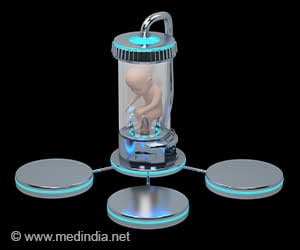
"This is the first study to report on vitamin D levels in a large group of critically ill children," said Dr. McNally, a clinical researcher and intensivist at the Children's Hospital of Eastern Ontario (CHEO) and assistant professor in the Department of Pediatrics at the University of Ottawa.
The study, led by Dr. McNally at the CHEO Research Institute, included over 300 children and teenagers at six hospitals in Ottawa, Toronto, Hamilton, Edmonton, Saskatoon and Vancouver. These children were admitted to an Intensive Care Unit (ICU) with severe infections, significant trauma or conditions requiring major surgery, such as congenital heart defects.
Their study found that in three of every four critically ill children, blood vitamin D levels were below the target considered safe by many experts and medical societies. Further, those with lower vitamin D levels were noted to be sicker, requiring more life-sustaining therapies (breathing tubes, medications to support heart function) and staying in the ICU for longer periods of time.
"Although these findings are of concern, we are very encouraged because we've discovered something that is modifiable," explained Dr. McNally. "There are simple ways to prevent this problem, and it may be possible to rapidly restore vitamin D levels at the time of severe illness."
Advertisement













